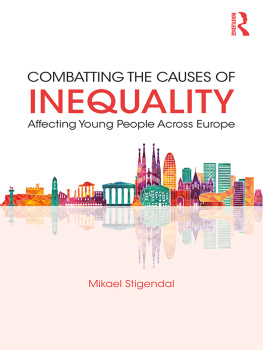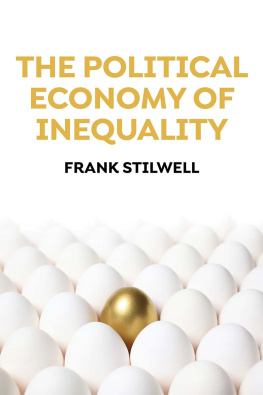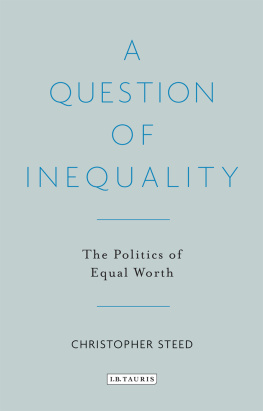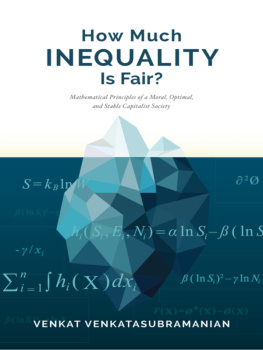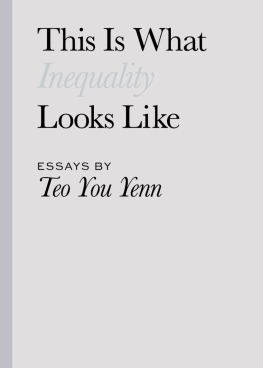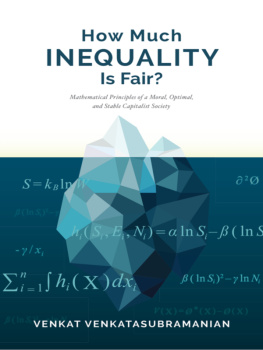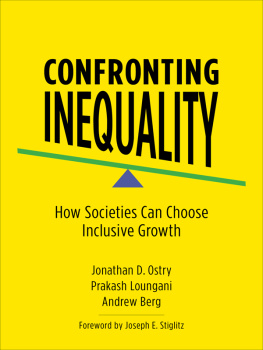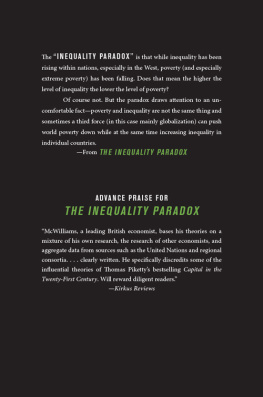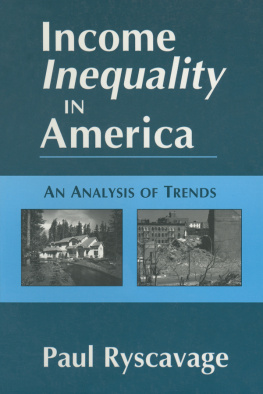An important contribution to understanding youth inequality in Europe, combining an ambitious, multi-dimensional theoretical framework, a critical discussion of EU policies, and concrete empirical knowledge from case studies of city neighbourhoods in ten countries. On the basis of experiences from the latter Stigendal also provides guidelines for local combats against inequality and exclusion.
Gran Therborn, author of The Killing Fields of Inequality, and of Cities of Power
Mikael Stigendal makes a passionate plea to take young people serious in policies to combat inequality in European cities. After exposing the limits of policies that focus on problems and deficiencies, his potential-oriented approach offers rich empirical insights on initiatives and policies that empower young people in their cities and neighbourhoods.
Andreas Novy, Head of the Institute for Multi-Level Governance and Development, Vienna University of Economics and Busines
COMBATTING THE CAUSES OF INEQUALITY AFFECTING YOUNG PEOPLE ACROSS EUROPE
Inequality is one of the most burning issues of our time, affecting young people in particular. What causes inequality? And how can actors at the local level combat the causes, not only the symptoms? By seeking to answer these questions, the book will contribute to this growing and transdisciplinary subject area by using mainly qualitative research and a perspective that integrates theory in every phase of the analysis.
Drawing on cultural political economy, based on critical realism, the author claims that the most important causes of inequality are the ones inherent as potentials in capitalism and the capitalist type of state. Compared with the first post-war decades, these potential causes have been actualised differently since around 1980. They are also actualised differently across Europe. The book explores these differences concerning growth models and welfare regimes. In general, societies have developed into a new condition of social inclusion, which explains why many young people have become excluded. Societal borders have arisen in the cities, separating the winners and losers of inequality.
Positioning itself outside the box of what tends to be the majority of the publications in the field, the book proposes knowledge alliances between young people, policy-makers, civil society and researchers to combat the causes of inequality.
Mikael Stigendal is Professor in Sociology at Malm University, Sweden. His doctoral thesis from 1994 dealt with the Swedish societal model, from a local perspective on Malm. Thereafter, his research has highlighted the emergence of social exclusion in European cities, particularly regarding the situation for young people. In his explanations, he has explored how societies have developed into new conditions of social inclusion. Much of his research has been carried out interactively, in collaboration with municipal employees, voluntary workers and young people.
ENERGY AND ECONOMIC GROWTH
Mikael Stigendal
First published 2018
by Routledge
2 Park Square, Milton Park, Abingdon, Oxon, OX14 4RN
and by Routledge
711 Third Avenue, New York, NY 10017
Routledge is an imprint of the Taylor & Francis Group, an informa business
2018 Mikael Stigendal
The right of Mikael Stigendal to be identified as author of this work has been asserted in accordance with sections 77 and 78 of the Copyright, Designs and Patents Act 1988.
All rights reserved. No part of this book may be reprinted or reproduced or utilised in any form or by any electronic, mechanical, or other means, now known or hereafter invented, including photocopying and recording, or in any information storage or retrieval system, without permission in writing from the publishers.
Trademark notice: Product or corporate names may be trademarks or registered trademarks, and are used only for identification and explanation without intent to infringe.
British Library Cataloguing in Publication Data
A catalogue record for this book is available from the British Library
Library of Congress Cataloging in Publication Data
A catalogue record for this book has been requested.
ISBN: 978-0-415-78752-9 (hbk)
ISBN: 978-0-415-78753-6 (pbk)
ISBN: 978-1-315-22588-3 (ebk)
The idea to write this book was born out of the EU funded-project Citispyce, (Combatting Inequalities through Innovative Social Practices of and for Young People in Cities across Europe). This project was devised against the backdrop of research, which had shown the disproportionate impact of the global economic crisis on young people across Europe and received funding from the European Unions Seventh Framework Programme (FP7/20072013) under grant agreement n 320359. Lasting for three years from January 2013 to December 2015, Citispyce was coordinated by Aston University in Birmingham UK and involved 13 partner organisations from 10 cities in just as many countries across the EU: Athens, Barcelona, Birmingham, Brno, Hamburg, Krakow, Malm, Rotterdam, Sofia and Venice.
Many researchers and practitioners from all these cities participated in Citispyce. Those that I had the most to do with were Helen Higson, Jill Robinson and Ajmal Hussain at Aston University in Birmingham; Olga Jubany, Berta Gell and Malin Roiha at Universitat de Barcelona; Simon Gentner, Louis-Henri Seukwa and Anne-Marie Gehrke at Hamburg University of Applied Sciences (HAW); Jonas Alwall and Martin Grander at Malm University; Pia Hellberg Lannerheim at the City of Malm; Tom Sirovtka and Jana Valkova at Masaryk University in Brno; Micha Mode at Crakow University of Economics; Henk Spies and Suzanne Tan at PlusConfidence in Rotterdam; Marko Hajdinjak and Maya Kosseva at International Centre for Minority Studies and Intercultural Relations (IMIR); Maria Pothoulaki and Pyrros Papadimitriou at Kendro Merimnas Oikoyenias Kai Pediou (KMOP) in Athens; and Francesca Campomori and Francesco Della Puppa at Universit Ca Foscari Venezia. Thanks to all of you for some great, rewarding and enjoyable years.
The Citispyce work at the local level in Malm has also been very beneficial for the writing of this book. During the first year we cooperated with people associated with Sofielunds Folkets Hus, in particular Hkan Larsson, Gte Rudvall, Jessica Hultzn and Fredrik Bjrk. Many students from the course in Urban Integration at Malm University produced case studies linked to Citispyce. Thereafter, we linked Citispyce to an ESF-funded project, where I worked together with Alexandra Fritzson, Mikael Sandgren, Lina Gustafsson and Alison Mendez from Rdda barnen (Save the Children); Elin Dagerbo and Ingemar Holm from Centrum fr Publikt Entreprenrskap (Centre for Public Entrepreneurship), Maria Lagneby and Christoph Lukkerz from Ntverk Idburen sektor Skne, Mattias Larsson from Lnsstyrelsen (now manager of Ntverket), Helena Thelander from Hllbar Utveckling Skne (Sustainable Development Skne), Eva Lidmark from PWC and Tom Roodro from the City of Malm. Many thanks to all of you.
During the years with Citispyce, I also participated in other international initiatives which were beneficial for this book; one of them being EuroMemo Group; another one the FP7-funded project Improve; and also the work led by Ngai-Ling Sum and Bob Jessop to establish Cultural Political Economy as an emerging approach. I am particularly grateful to Bob Jessop for all the very important discussions we have had since the late 1980s.

